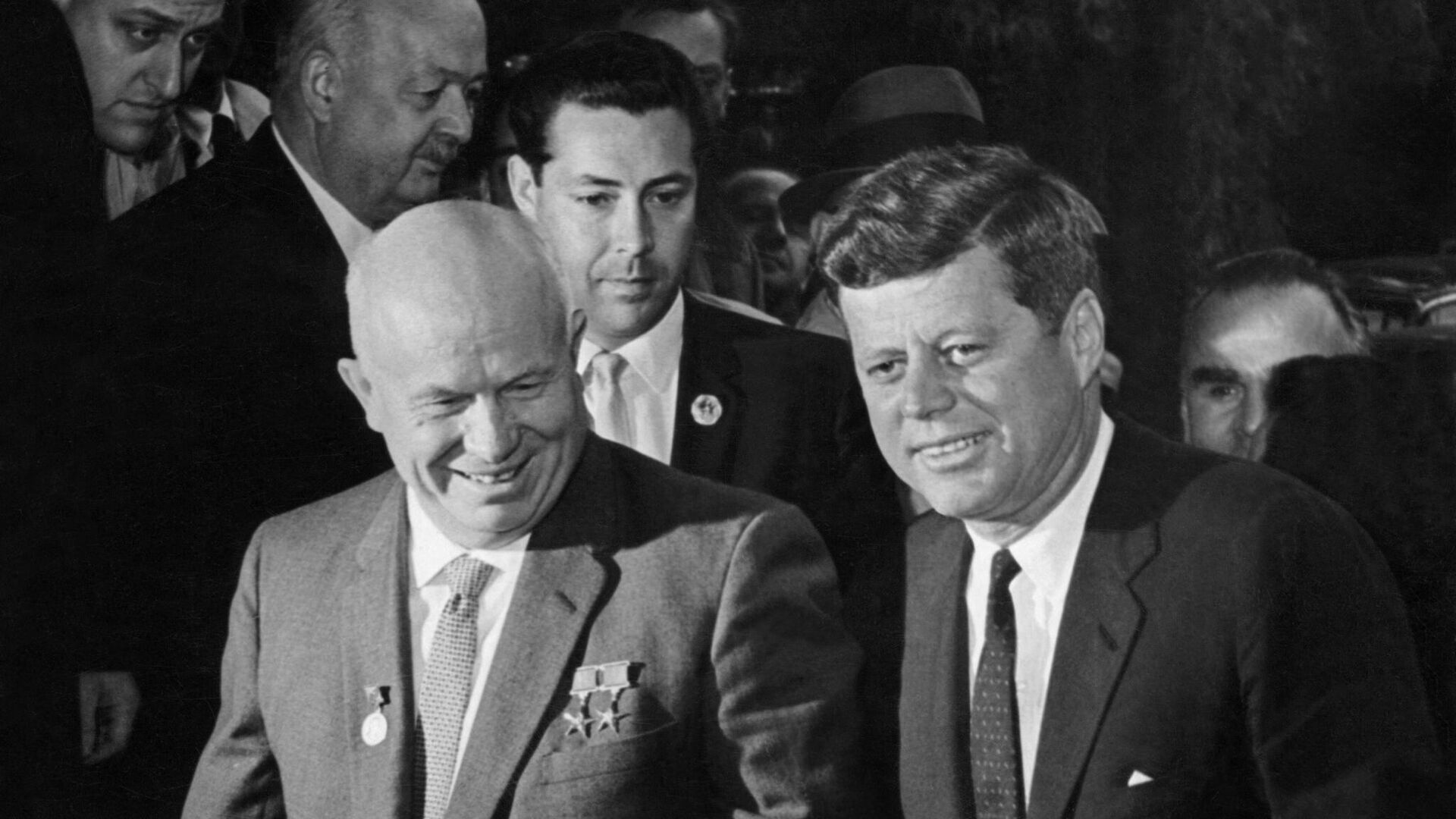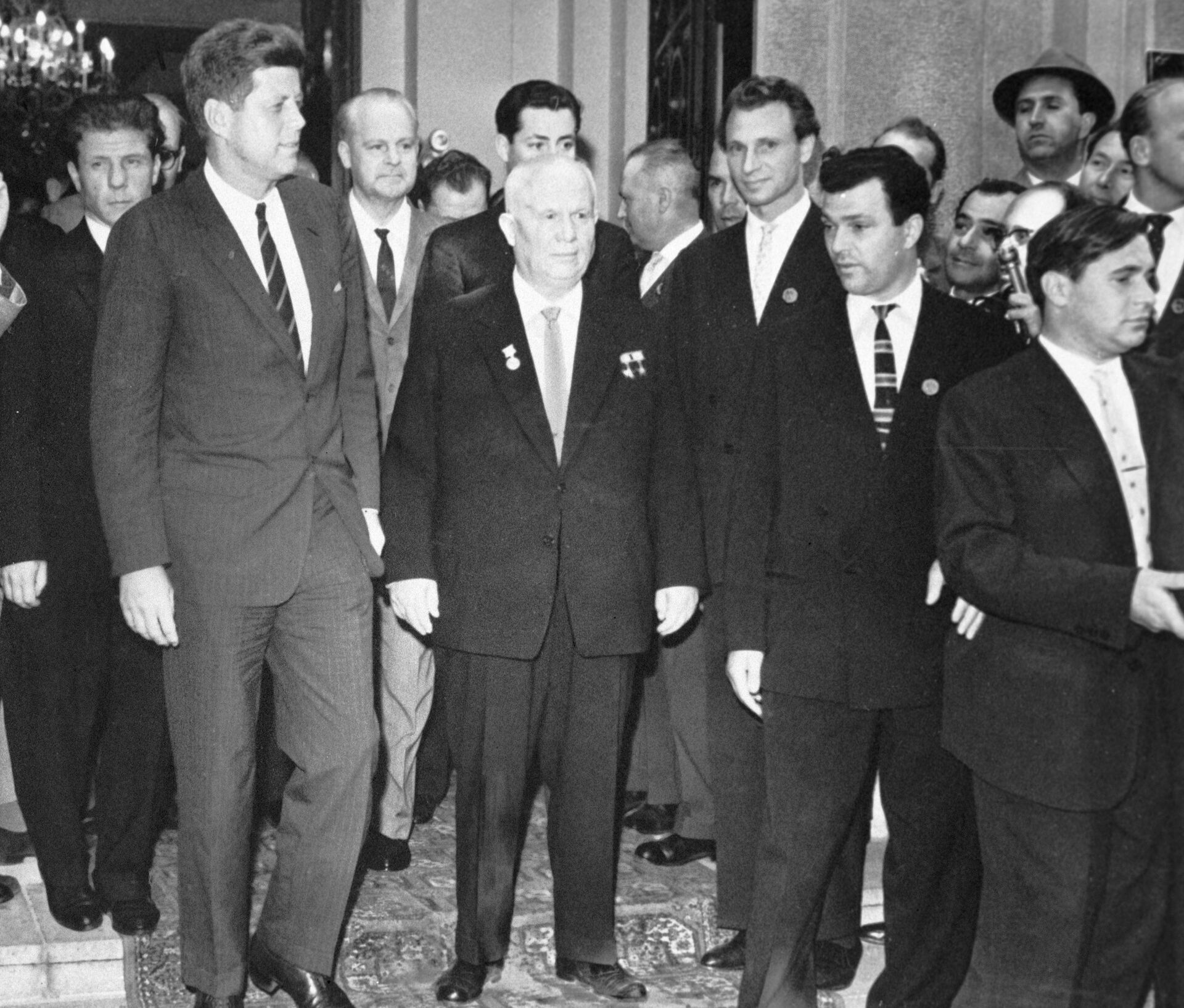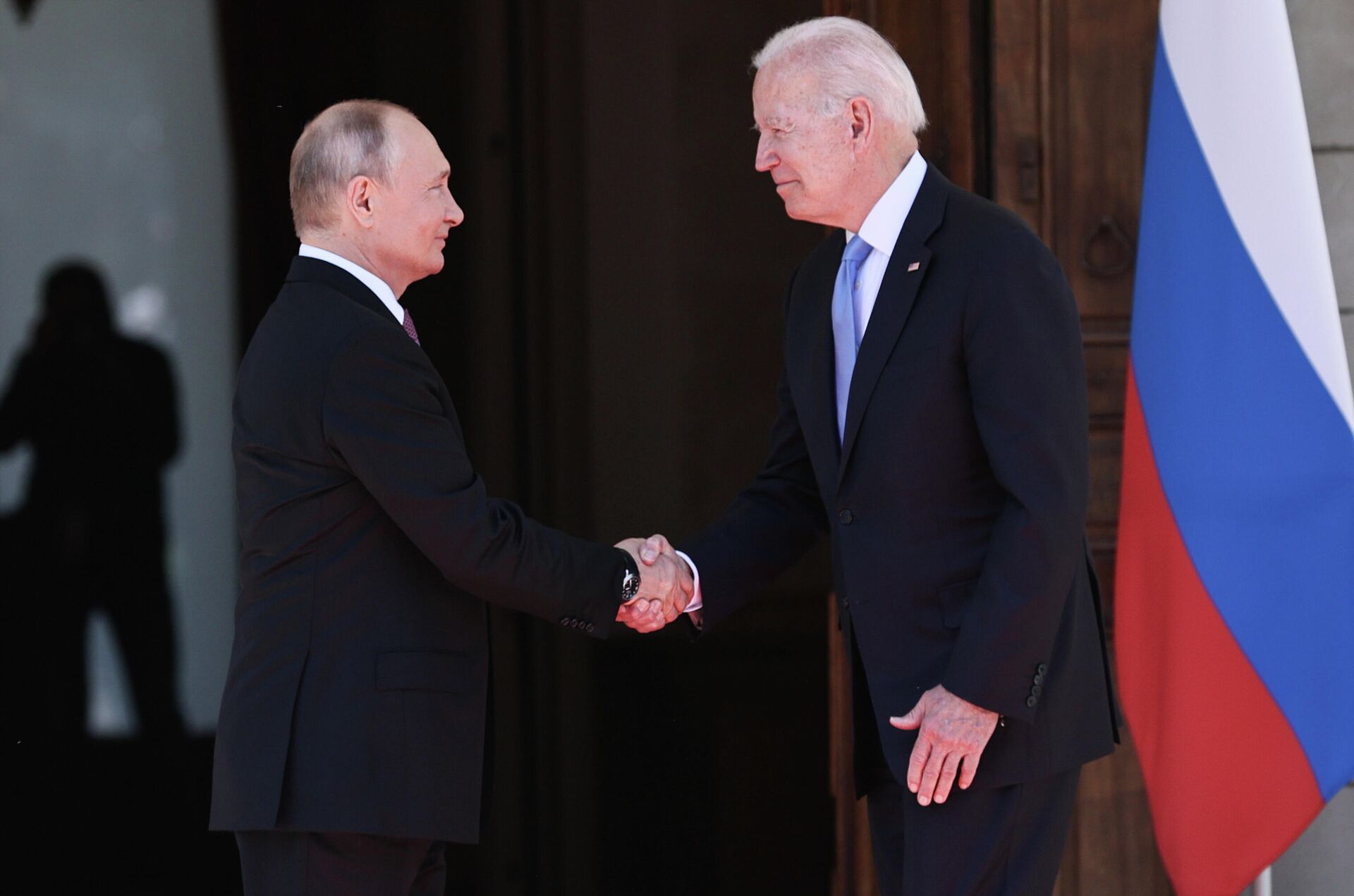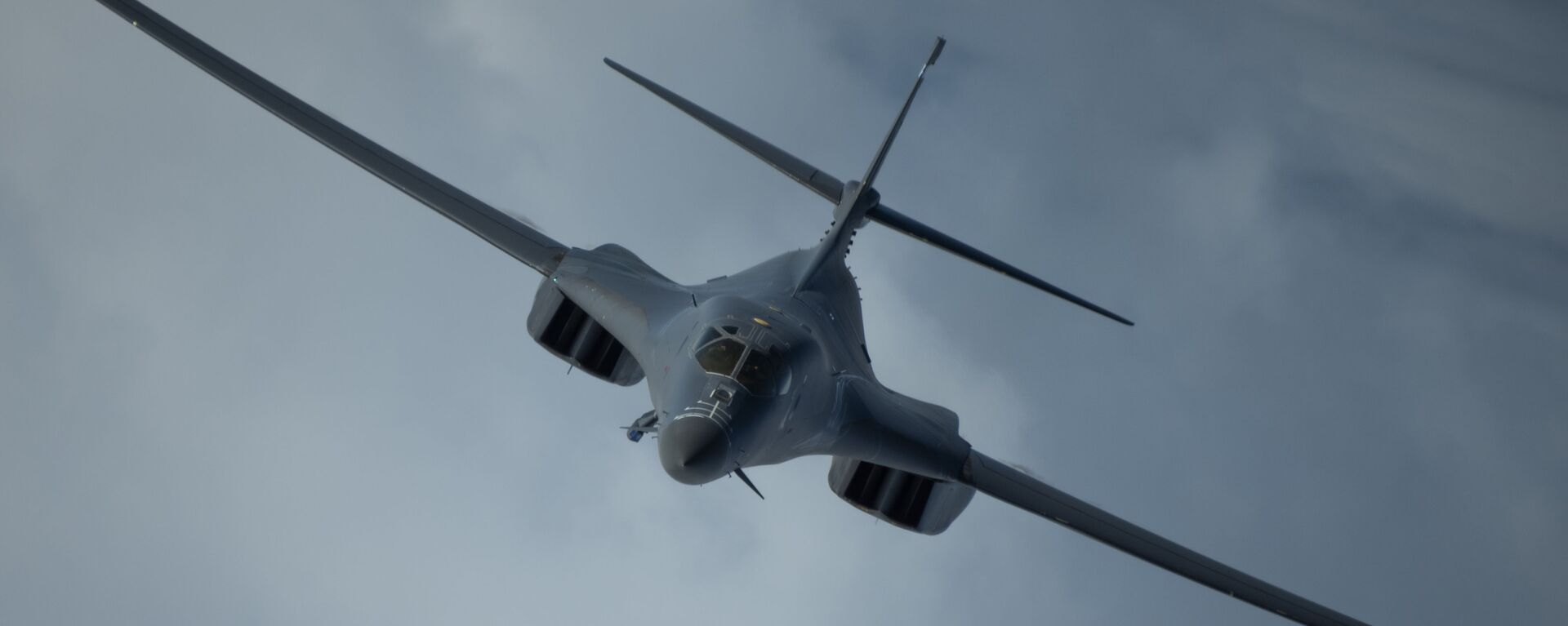Cuban Missile Crisis 60 Years On: Nuke Risk Higher Today Amid Diplomatic Deficits

© AFP 2023 / -
Subscribe
WASHINGTON, (Sputnik) - Sunday marks sixty years since the outbreak of the 1962 Cuban Missile Crisis, a thirteen-day nuclear standoff between the United States and Soviet Union that was ultimately resolved through skillful diplomacy, the type of which some fear may be lacking to defuse current superpower tensions.
On October 16, 1962, US President John Kennedy was shown surveillance photos of what he called "unmistakable evidence" the Soviets were building installations for medium-range nuclear-tipped missiles in Cuba, 90 miles off Florida’s coast. In consultations with senior officials, Kennedy was presented with two alternatives: a military invasion or a naval blockade.
The missile buildup came after Cuban President Fidel Castro asked Moscow for deterrence assistance in the wake of the US failed Bay of Pigs invasion in April of 1961.
October 22, the seventh day of the crisis, Kennedy announced the imposition of a naval "quarantine," choosing to avoid the word "blockade" which could be considered an act of war. Blockades prevent all trade and travel whereas the quarantine only prohibited offensive military equipment.
This came after hours of difficult meetings between Kennedy and US security officials, many of whom pressed for more aggressive options.
Nevertheless, in the ensuing days, Castro mobilized Cuba’s army, the Soviet missiles were placed on ready to launch, and their ships were soon at the so-called quarantine line.
Meanwhile, American military forces were put on defense readiness condition 2, the highest in US history - just one away from DEFCON 1 - which signaled the outbreak of nuclear warfare.
Lack of Leadership & Critical Thinking
It was not until day eleven that back-channel talks began between presidential adviser Robert Kennedy and Soviet ambassador Anatoly Dobrynin, which culminated in a deal that publicly called for the US to vow not to invade Cuba in exchange for Moscow dismantling the nuclear sites. However, the negotiators also struck a private agreement that the US would remove missiles from Turkey.
The crisis ended on October 28, when Soviet Premier Nikita Khrushchev announced the dismantling of Soviet missile installations, while keeping the deal on Turkish missiles a secret. The solution allowed both sides to "save face," and exhibited sophisticated diplomatic acumen on the part of both Kennedy and Khrushchev, the type of which experts fear is sorely lacking today in the face of rising nuclear tensions between the US and Russia.
Not to mention, the size and nature of present day arsenals are much different than they were sixty years ago, when the US had 3,500 nuclear warheads and the Soviets about 500. According to the Federation of American Scientists, the US currently has 5,428 nuclear warheads and Russia 5,977.
During a recent interview with CNN, President Joe Biden warned that miscalculations over the Ukraine conflict "could end in Armageddon," just a week after suggesting the world was facing another Cuban Missile Crisis and wondered aloud about finding an "off ramp," for Russian President Vladimir Putin.
Historian Dan Lazare described the stark difference between the current approach with 1962.
"The maturity of people like Kennedy and Khrushchev can't help but contrast with the recklessness, arrogance, and sheer stupidity of people like Biden," Lazare told Sputnik. "Thanks to NATO's drang nach osten, we are closer to nuclear war than we probably were in 1962. Yet negotiations are nowhere in sight. How the world has regressed in a mere 60 years."
Unlike Biden’s declaration to find an "off-ramp," for Putin, Lazare noted that Khrushchev and Kennedy were savvy enough to make the "behind-the-scenes" deal to remove missiles from Turkey in exchange for the Soviets doing the same in Cuba.
Historian and political commentator Anton Chaitkin feels the existence of human civilization is now endangered due to Western power structures and intellectual deficits that have made a shift away from war escalation very difficult. A situation miles away from Kennedy’s quality of "truth-seeking" that he believes "saved humanity."
"There is no thinking at the top," Chaitkin said. "Any critical thought, like Kennedy’s process, could have wonderful consequences."

Nikita Khrushchev, first secretary of the CPSU Central Committee and Prime Minister of the USSR, and the U.S. President John Kennedy at the Soviet embassy in Vienna. (File)
© Sputnik
/ Former UK ambassador Peter Ford fears the Cuban missile crisis will be seen as a reason not to panic, which is dangerous because the "hubristic" West does not have the same type of leadership, not to mention it is much easier to launch a nuclear war in the 21st century.
"Biden is no Kennedy," Ford told Sputnik. "And in the 1960s tactical nukes did not exist. The potential threshold for going nuclear today is much lower."
American University in Moscow President Professor Edward Lozansky said the current situation is much worse than in 1962 partly because Washington wrongly believes the worst-case scenario is that Russia would only use tactical nuclear weapons and only against Ukraine and other targets in Europe.
"This is a gross miscalculation since, according to Russian military doctrine, in case of the existential threat to [the] homeland Moscow will use the strategic nuclear weapons that will reach the US," Lozansky warned. "It looks like Washington is totally ignoring this scenario and therefore does not even want to think about compromise with Putin, looking only for his total defeat."
No Desire to Talk or De-Escalate
University of Louvain Professor of Philosophy Jean Bricmont is also worried about signs Washington does not even want a settlement.
"During the Cuban missile crisis, there was a desire on both sides to de-escalate. I see no such sign now, at least on the American side," Bricmont told Sputnik. "They have been provoking Russia since the 1990’s by extending NATO eastwards and profiting from Yeltsin’s weakness to ‘loot’ Russia."
Hence, he added, the situation seems totally blocked or rather drifting towards the apocalypse.
"Is there anybody to stop that madness?" Bricmont said. "We will see or die."
University of Illinois Professor of Law Francis Boyle, who also observed the lack of Kennedy-style diplomatic skill in the White House, is concerned that so far the Biden administration has publicly ruled out direct negotiations with Moscow over Ukraine.
"Though there could be back-channel negotiations going on right now that I am not aware of," Boyle added. "Let’s hope there are."

Russian President Vladimir Putin, left, and U.S. President Joe Biden shake hands ahead of their meeting at the Villa La Grange in Geneva, Switzerland
© Sputnik / Sergey Bobylev
/ Stephen Schlesinger, one of the premier historians of the UN, said a major difference in today’s crisis has been the failure of either side to leverage third parties, like the US and Soviets did with then-UN Secretary-General U Thant.
"In the Cuban missile crisis, the leaders of the USA and USSR were sober enough to use intermediaries - including U Thant - to communicate a desire for a settlement - while in today’s hostilities, Biden and Putin are simply not talking," he said.
Meanwhile, the lack of opposition to the US support for Ukraine has been conspicuous other than disgruntlement expressed in a few polls, while antiwar progressives in Congress have even backed billions in military aid to Kiev.
"There are a few brave folks warning of the looming disaster but their voices are drowning in the ocean of ignorance," Lozansky said.
Boyle said the situation is unlikely to get resolved unless the antiwar movement mobilizes.
"It is really up to the American peace movement to pressure the Biden administration to open direct negotiations over the Ukraine war with the Russian government before the war degenerates out of control as almost happened during the original Cuban Missile Crisis," Boyle concluded.


